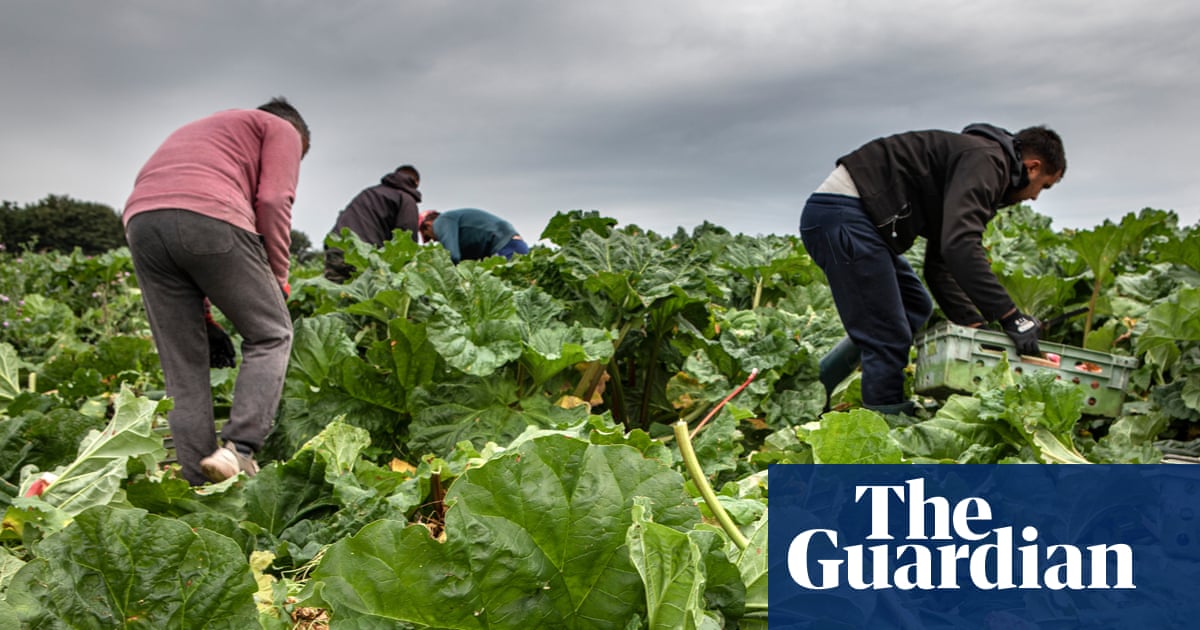UK companies spent up to £65m last year on licences to export food and agricultural products to the EU – costs that the government is promising to eliminate as part of a new deal to be agreed by 2027.
Government figures released on Tuesday showed it issued 328,727 such licences last year, at a cost of between £113 and £200 each. That would put the total cost to business at somewhere between £37m and £65m.
Nick Thomas-Symonds, the Cabinet Office minister in charge of European negotiations, will on Wednesday pledge to eliminate such costs as he promises a new agreement with the EU in the next 18 months.
In an event at the Spectator offices in London to be hosted by the leading Brexiter Michael Gove, Thomas-Symonds will make a vocally political argument for becoming closer to the EU.
Ministers have decided in recent months their attempts to realign with Brussels enjoy more support than the approach of the Conservatives or Reform UK, which have promised to rip up Labour’s renegotiated deal.
Thomas-Symonds will take specific aim at Farage, arguing: “Nigel Farage’s manifesto at the next election will say in writing he wants to take Britain backwards, cutting at least £9bn from the economy, bringing with it a risk to jobs and a risk of food prices going up.”
A day after the Reform leader gave a speech warning that Britain was under threat from an “invasion” of asylum seekers, Thomas-Symonds will add: “Nigel Farage wants Britain to fail. His model of politics feeds on it, offering the easy answers, dividing communities and stoking anger.”
Keir Starmer announced a new agreement with the EU in May, as part of which ministers agreed to pursue a series of specific deals, including one on food and agricultural products.
The prime minister was attacked at the time by the Conservative leader, Kemi Badenoch, who argued that the UK was “being dragged back” into the EU, and Farage, the Reform leader, who called it a “Brexit betrayal”.
Labour ministers have been keen to avoid any perception that they are reintroducing a customs union or free movement by the back door. But Thomas-Symonds’ speech on Wednesday indicates they are feeling more confident about making a pro-EU case for removing trade barriers.
He will say the government is “putting in the hard yards, not resting on empty slogans” and that its policy is based on “sovereignty, in the national interest”.
Labour says its new agricultural deal will mean fewer checks on meat, fish, fruit and vegetables imported from the EU, and an end to the current export-licensing scheme.
A report on Tuesday from the Department for Environment, Food and Rural Affairs said these costs had been particularly burdensome for smaller business, warning: “These firms often lack the capacity and economies of scale to manage the administrative and compliance demands associated with NTMs (non-tariff measures).
“This has created a competitive disadvantage between smaller firms and larger operators with in-house capability – although all stakeholders report increased costs.”
In April, British supermarkets and food producers, including Marks & Spencer and Sainsbury’s, urged the EU to complete the proposed goods and agricultural deal, saying the existing arrangement had led to “unnecessary red tape”.
A Labour spokesperson said: “The Tory Brexit deal was a complete failure, saddling businesses with costs they shouldn’t have had to face and harming our economy in the process.
“But Nigel Farage and Kemi Badenoch have both committed to ripping up Labour’s agreement and keeping this damaging red tape in place.”
